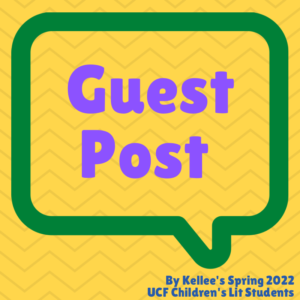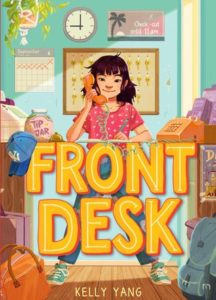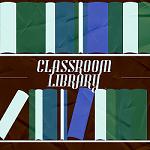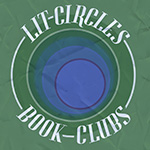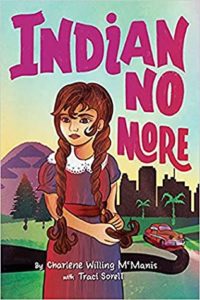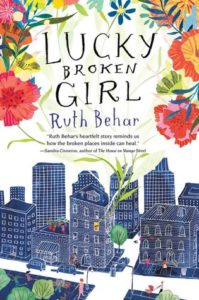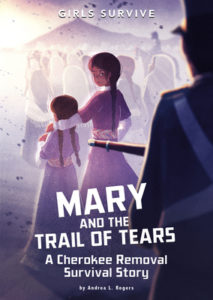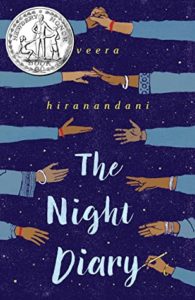One of the assignments during my Spring Children’s Literature course at UCF was creating a mini-teaching guide for the books we read for book clubs. We started with picture books for practice then students created them in their book clubs each week.
Today, I am happy to share the classroom uses and discussion questions found by my UCF Elementary Education students for some historical fiction books they read.
Front Desk
Author: Kelly Yang
Published May 29th, 2018 by Arthur A. Levine Books
Summary: Mia Tang has a lot of secrets.
Number 1: She lives in a motel, not a big house. Every day, while her immigrant parents clean the rooms, ten-year-old Mia manages the front desk of the Calivista Motel and tends to its guests.
Number 2: Her parents hide immigrants. And if the mean motel owner, Mr. Yao, finds out they’ve been letting them stay in the empty rooms for free, the Tangs will be doomed.
Number 3: She wants to be a writer. But how can she when her mom thinks she should stick to math because English is not her first language?
It will take all of Mia’s courage, kindness, and hard work to get through this year. Will she be able to hold on to her job, help the immigrants and guests, escape Mr. Yao, and go for her dreams?
Teachers’ Tools for Navigation: This book would be useful in a classroom because it discusses real life topics like immigration, racism, poverty, bullying and even fraud. It gives a message to students on how important it is to fight for what’s right and to learn to treat others with respect, regardless of what they look like. It can be used as a platform for students to discuss issues that they can relate to.
Discussion Questions:
- What was Mia’s job at the hotel? What characteristics she have to make her flourish doing that job?
- Mia’s mom mothers says, were immigrants. Our lives are never fair,” what does she mean by that?
- How did Mia change and grow throughout the book?
- Within the book, Mias mother wanted her to practice her math skills despite how Mia felt. Has there ever been a time where you felt like you were in the same position as Mia?
- Mia and her dad discuss the value of a penny. He says, “A mistake isn’t always a mistake. Sometimes a mistake is actually an opportunity. What does he mean by that?
- Would you try to help immigrants the same way Mia’s family did or would you try to come up with a different solution? What would you do if you were caught by your employer?
- If you were part of an immigrant family would you stay to work at this motel or would you leave to try better opportunities? Why would you stay or leave?
- If you ran a motel how would you handle customers?
- Do you think Mia’s mother was right to have her focus more on math or should she have been supportive of her daughter’s interest in writing? Why do you think one way or the other.
Recommended For:
Indian No More
Author: Charlene Willing McManis with Traci Sorell
Published September 24th 2019 by Tu Books
Summary: Regina Petit’s family has always been Umpqua, and living on the Grand Ronde reservation is all ten-year-old Regina has ever known. Her biggest worry is that Sasquatch may actually exist out in the forest. But when the federal government signs a bill into law that says Regina’s tribe no longer exists, Regina becomes “Indian no more” overnight–even though she was given a number by the Bureau of Indian Affairs that counted her as Indian, even though she lives with her tribe and practices tribal customs, and even though her ancestors were Indian for countless generations.
With no good jobs available in Oregon, Regina’s father signs the family up for the Indian Relocation program and moves them to Los Angeles. Regina finds a whole new world in her neighborhood on 58th Place. She’s never met kids of other races, and they’ve never met a real Indian. For the first time in her life, Regina comes face to face with the viciousness of racism, personally and toward her new friends.
Meanwhile, her father believes that if he works hard, their family will be treated just like white Americans. But it’s not that easy. It’s 1957 during the Civil Rights Era. The family struggles without their tribal community and land. At least Regina has her grandmother, Chich, and her stories. At least they are all together.
Teachers’ Tools for Navigation: This book is useful for teaching about the US Government and US History. This book also teaches about how people from diverse identities showed solidarity with each other in the face of white supremacy, which is a core value of US democracy. The book also teaches that one’s identity is personal and they cannot be defined by other people.
Discussion Questions:
- Describe the significance of storytelling in Umpqua culture.
- This book examines how identity is very complicated and mixed but the US government imposes very rigid categories on people. Discuss how the categories the US government attempts to put people in, then and now, can harm people and are inaccurate.
- Describe the Grande Ronde Reservation from Regina’s point of view, is this different from other depictions of reservations you have seen?
- What made the Thanksgiving and the Thanksgiving play so hard on Regina and her family?
- Compare and Contrast the Indian Agency School on Grande Ronde Reservation and Budlong Elementary School in Los Angeles.
- Reflect on Regina’s first Halloween off the Reservation. What went wrong and how do you think Regina and her friends felt? Think about how it could affect them even after the attack.
- How did the passing of Chich affect the family? Why do you think Regina’s father reacted the way he did?
- Regina connects to her culture and identity by storytelling. Write about a significant event that happened to you.
- How does Regina’s father struggle with his identity after they move to Los Angeles?
- Within the story Regina Petit called her grandmother and grandfather Chich and Chup. What do you call your grandparents where you’re from? Why do you think it differs from Regina?
- Within the story, Regina was prideful of her long hair. It represented their culture back home. When Regina’s father cut it off, she was very upset. How do you think you would have reacted if someone took something that means alot in your culture and why?
- Chich would keep the story of their homeland alive through her story telling. What stories do you have of your own culture that represents you? Why did you chose this?
- Looking back at the story of the beaver, how can this relate to you in your life?
- Have you ever experienced/seen someone experience what Regina and her friends did on Halloween? How would you react if you were in this situation? Do you think this was a fair treatment?
- When Regina and her family wanted to celebrate her father promotion at work, they were denied service due to the color of their skin and appearance. Have you or someone you know experienced not being served at a restaurant just because of your appearance? Do you think this treatment of people of color is correct and just? How would you react if it were you in this very same situation?
- What did you know about this time period prior to reading this book? Do you believe you learned more about the time period from the book after reading it? What have you learned?
- How do you think Regina’s life differs from your own life? Do you think the time period has anything to do with that?
- Have you ever experienced a great loss like Regina and her sister did towards the end of the book? How did you react to it?
- If there was anything about the events in the book that you would change what would it be? Why did you choose this event to change?
Recommended For:
Lucky Broken Girl
Author: Ruth Behar
Published April 11th 2017 by Nancy Paulsen Books
Summary: Based on the author’s childhood in the 1960s, a young Cuban-Jewish immigrant girl is adjusting to her new life in New York City when her American dream is suddenly derailed.
Ruthie Mizrahi and her family recently emigrated from Castro’s Cuba to New York City. Just when she’s finally beginning to gain confidence in her mastery of English and enjoying her reign as her neighborhood’s hopscotch queen, a horrific car accident leaves her in a body cast and confined her to her bed for a long recovery. As Ruthie’s world shrinks because of her inability to move, her powers of observation and her heart grow larger. She comes to understand how fragile life is, how vulnerable we all are as human beings, and how friends, neighbors, and the power of the arts can sweeten even the worst of times.
Teachers’ Tools for Navigation: This book would be useful in the classroom for group discussions about overcoming hardships. It is also useful in the classroom to help students who are learning English relate to Ruthie.
This book will be a good choice for a classroom library. This book represents the story of a strong girl living through a difficult time in her life. She had to move to a new country but also had a bad accident that left her physically and emotionally drained. This book can help children learn to face loss and have hope for a better future.
Discussion Questions:
- Ruthie faced hardship and she found it difficult to stay positive but her family and friends tried helping in the best way they could. How have your friends and family helped you when facing difficulties?
- What is the theme of Lucky Broken Girl and how can you relate to the theme?
- How are characters helping and not helping Ruthie cope during her recovery?
- Was Chico a good friend to Ruthie? Why? What did he do during Ruthie’s recovery?
- What did Ruthie learn about the immigration stories of the people around her?
- Ruthie has been reading a lot during her recovery, especially Nancy Drew. How are these books helping her and encouraging her?
- How was Ruthie “Lucky” while being bedridden for ten months?
- What connection can you make with Ruthie or her family?
- The painting of Frida Kahlo and the poems of Emily Dickerson help Ruthie understand her situation. What poems, books, or artists have helped you through a hard time, and why?
Recommended For:
Mary and the Trail of Tears: A Cherokee Removal Survival Story
Author: Andrea L. Rogers
Published January 1st 2020 by Stone Arch Books
Summary: Twelve-year-old Mary and her Cherokee family are forced out of their home in Georgia by U.S. soldiers in May 1838. From the beginning of the forced move, Mary and her family are separated from her father. Facing horrors such as internment, violence, disease, and harsh weather, Mary perseveres and helps keep her family and friends together until they can reach the new Cherokee nation in Indian Territory. Featuring nonfiction support material, a glossary, and reader response questions, this Girls Survive story explores the tragedy of forced removals following the Indian Removal Act of 1830.
Teachers’ Tools for Navigation: The story goes into great detail from the time Mary learns what is happening and the journey across the land. The characters face many different challenges on their journey, and the book does a great job at providing dates and locations. Also, the drama response of the news reporter would be fun, as it is clear the characters in the story have many opinions and emotions.
This book could also be used as a read-aloud book. It would be great to read a chapter a day as a class, even having children popcorn read paragraphs. After reading, students can do several different activities about the culture, history, and even character perspectives
Discussion Questions:
- In what ways would you try to communicate to the soldiers if you didn’t speak English like Mary.
- In what ways would you try to comfort your younger family members knowing you had no home to return to?
- When Mary and her family are trapped in the mud caused by the non-sto prain, they begin to sing a song they all remember. Do you have a song your whole family knows? What song(s) do you sing to make yourself feel better?
- While reading this book what emotions trigger you the most: sad, happy, confused?
- In what ways do you relate to Mary?
- How does not being able to speak the language with the soldiers create a conflict for Mary?
- We’ve all felt alone at some point whether its been when we lost our mom at the grocery store for a second or what have you, name a similar situation in which you felt alone like Mary. Elaborate.
- When was there a time where you felt scared like Mary? What did you do to overcome this fear?
- How do you think that this situation of being forcefully kicked out of your house would play out today because you were of a certain racial group? What would be the effects?
- Explain a time you cried tears of joy?
Recommended For:
The Night Diary
Author: Veera Hiranandani
Published March 6th 2018 by Kokila
Summary: It’s 1947, and India, newly independent of British rule, has been separated into two countries: Pakistan and India. The divide has created much tension between Hindus and Muslims, and hundreds of thousands are killed crossing borders.
Half-Muslim, half-Hindu twelve-year-old Nisha doesn’t know where she belongs, or what her country is anymore. When Papa decides it’s too dangerous to stay in what is now Pakistan, Nisha and her family become refugees and embark first by train but later on foot to reach her new home. The journey is long, difficult, and dangerous, and after losing her mother as a baby, Nisha can’t imagine losing her homeland, too. But even if her country has been ripped apart, Nisha still believes in the possibility of putting herself back together.
Told through Nisha’s letters to her mother, The Night Diary is a heartfelt story of one girl’s search for home, for her own identity…and for a hopeful future.
Teachers’ Tools for Navigation: This book can be useful in the classroom when talking about and learning about different cultures around the world. Students will have a better understanding of the differences of two close religions and cultures, as I learned when reading the book.
This book would also be useful when it comes to the topic of World History. After reading this book, students would have had insight to another culture and perspective from a standpoint of someone of a different culture in a different country.
Discussion Questions:
- How do you think Nisha felt when she had to move?
- What do you think you would have done if you or a family member were attacked on a train like Nisha and her family was?
- Nisha kept a diary, what kind of thing do you think you would put in yours if you had one? Would your diary be similar to Nishas?
- Do you think Papa made the right decision on moving away? Explain why or why not.
- Do you think Nisha preferred one religion to the other? Hindu or muslim?
- Kazi was Nisha’s best friend but she had to leave her behind. Do you think they would still keep in touch if they could?
- Why do you think there was so much division in India?
- How did the book make you feel after and during reading? Was it what you expected? Explain.
- Nisha is half Muslim and half Hindu. Do you only have one religion in your household, or do you come from two like Nisha?
- How did reading about Nisha’s journey make you feel when she was attacked on the train? What would you do in that situation ?
- What are two lessons you learned from reading this book that are specific to Nisha’s Journey?
- Do you think Papa made a good choice by leaving? Why or why not?
- If you had to be a character from the book, who would you choose? Why?
- How did moving away affect Nisha?
- Name one character that contributed to Nisha’s life and journey to find herself.
- Does anyone have a diary? If so, do you think that you can relate to Nisha because she had one to? Why?
- Why do you think Papa didn’t want his son to smile in the beginning? What does this say about their culture?
- Think about your bond with your siblings if you have any. Do you find it to be similar to Nisha and her brothers in any way?
- When Nisha had to leave Kazi behind she was very sad. Have you ever lost a friend the way Nisha did, if so what was that like ?
Recommended For:
